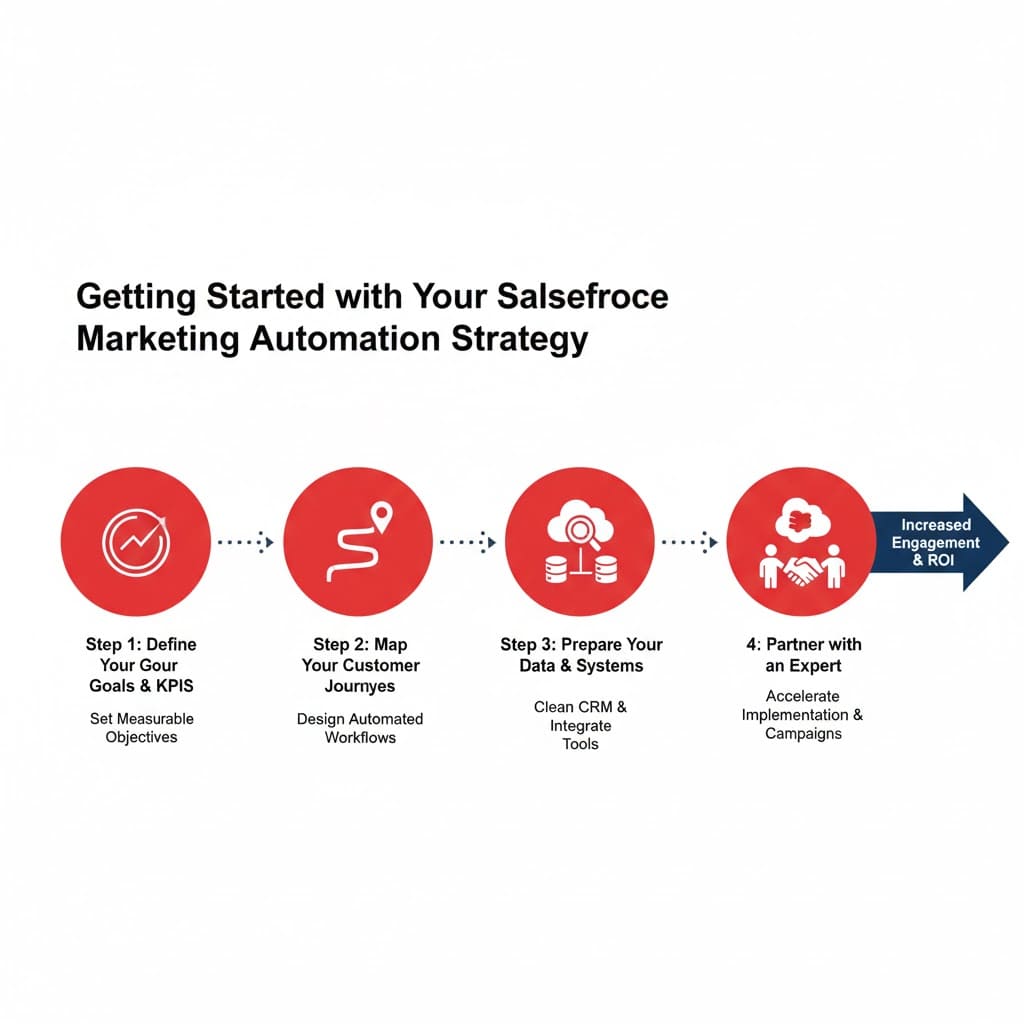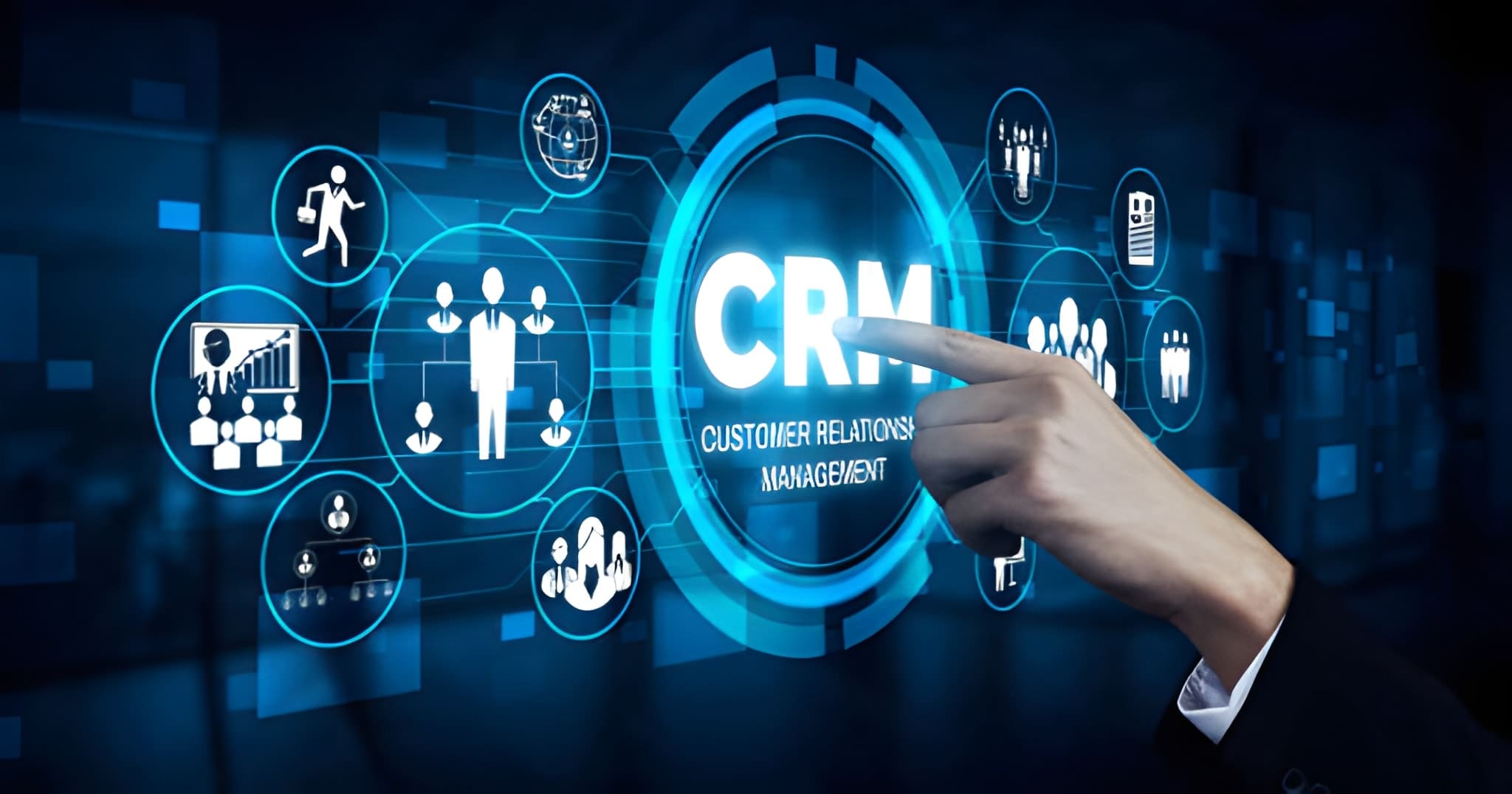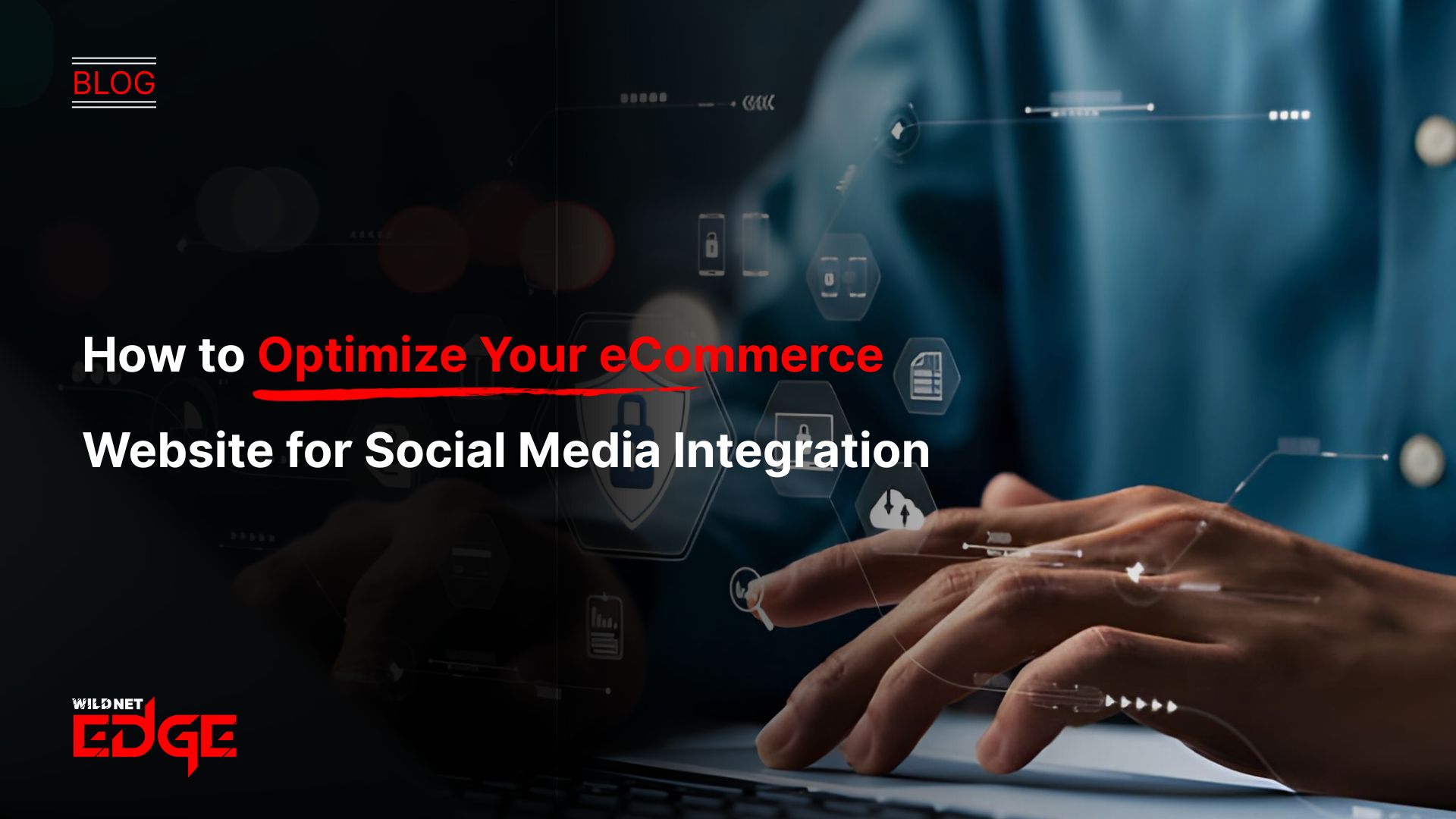In today’s crowded market, getting your message to the right person at the right time is everything. Generic marketing blasts no longer work. Your customers expect you to understand their needs. So, how do you deliver that personal touch at scale? The answer is Salesforce marketing automation. This guide will show you how to use this powerful platform to connect with customers, drive engagement and grow your business.
What is Salesforce Marketing Automation?
First, let’s define what we’re talking about. Salesforce marketing automation is much more than just an email tool. It is a sophisticated platform that helps you manage and automate marketing tasks across multiple channels. This includes email, social media, mobile ads and your website.
The real power, however, comes from its connection to your CRM. Unlike standalone tools, it uses the rich customer data in Salesforce to power your strategy. This is the core of effective CRM marketing. As a result, you can move beyond simple campaigns and start building intelligent, automated customer journeys that adapt to their behavior in real-time.
Why Your Business Needs Marketing Automation in 2025
Adopting Salesforce marketing automation is a strategic investment that delivers tangible results. The benefits go straight to your bottom line.
Deeper Customer Understanding
To begin with, the platform gives you a complete 360-degree view of your customers. It tracks every interaction, from the first website visit to the latest purchase. This data is gold because it helps you understand what your customers truly want. Consequently, you can segment your audience with incredible precision and tailor your messaging for maximum impact.
Highly Personalized Campaigns at Scale
With this deep understanding, you can create highly personalized campaigns. Imagine automatically sending a follow-up email with product recommendations based on a customer’s browsing history. Or, you could nurture a new lead with a series of targeted content that answers their specific questions. Salesforce marketing automation makes this level of personalization possible, even if you have thousands of customers.
Perfect Alignment Between Sales and Marketing
One of the biggest challenges in business is the gap between sales and marketing teams. Salesforce marketing automation bridges this gap. For instance, the marketing team can identify and nurture leads and then automatically pass the most qualified ones to the sales team. Sales gets better leads and marketing can prove its direct contribution to revenue. This alignment is critical for efficient growth.
Getting Started with Your Salesforce Marketing Automation Strategy
A successful rollout requires a clear plan. Following these steps will ensure your investment pays off.
Step 1: Define Your Goals and KPIs
First, decide what you want to achieve. Do you want to increase lead generation by 30%? Or maybe reduce customer churn by 15%? You should set clear, measurable goals. This will guide your entire strategy and help you prove the ROI of your efforts.
Step 2: Map Your Customer Journeys
Next, think about the path your customers take, from awareness to purchase and beyond. What are the key touchpoints? Where do they need information? By mapping these journeys, you can design automated workflows that deliver the right message at each stage. This is a crucial step to Automate Business Processes effectively.
Step 3: Prepare Your Data and Systems
Your automation is only as good as your data. Therefore, you need to ensure your CRM data is clean and well-organized. This is also the time to plan any necessary Salesforce Integration with your website or other marketing tools. A smooth technical setup is the foundation for success.
Step 4: Partner with an Expert
Finally, a powerful platform requires expertise. Partnering with a Salesforce Consulting expert can dramatically accelerate your success. They can help you with everything from the initial Salesforce Implementation to designing advanced, personalized campaigns.

Our Salesforce Marketing Automation in Action: Case Studies
Case Study 1: Nurturing High-Value B2B Leads
- The Challenge: A B2B technology company was generating a lot of leads, but their sales team didn’t know which ones to focus on. As a result, many promising leads went cold.
- Our Solution: We implemented Salesforce Pardot (Marketing Cloud Account Engagement). We built an automated lead scoring and grading system that nurtured leads with targeted content. Once a lead reached a certain score, it was automatically assigned to a sales rep with a full history of their engagement.
- The Result: The company saw a 50% increase in marketing-qualified leads and a 25% increase in sales conversion rates within six months. Sales and marketing were finally aligned.
Case Study 2: Reducing Cart Abandonment for an E-commerce Brand
- The Challenge: An online retailer was losing a significant amount of revenue from abandoned shopping carts. Their generic reminder emails were not effective.
- Our Solution: We used Salesforce Marketing Cloud Journey Builder to create a multi-step, personalized cart abandonment journey. The system sent timed reminders with images of the items left in the cart and even offered a small discount to first-time buyers.
- The Result: The brand recovered 18% of its abandoned carts. This translated to a direct and significant increase in monthly online revenue.
Our Salesforce Technology and Development Stack
We use the full power of the Salesforce ecosystem to build your marketing engine. For more advanced needs, our Salesforce Development Services can create custom solutions.
- Core Platforms: Salesforce Marketing Cloud, Account Engagement (Pardot), Sales Cloud
- Key Tools: Journey Builder, Email Studio, Advertising Studio, Datorama
- Development: AMPscript, Apex, Lightning Web Components (LWC)
- Integration Tools: MuleSoft, Zapier, Custom APIs
Conclusion
In short, Salesforce marketing automation is a game-changer for any business that is serious about growth. It allows you to move beyond basic CRM marketing and build intelligent, data-driven relationships with your customers. By delivering truly personalized campaigns at scale, you can boost engagement, align your teams and see a real impact on your bottom line. At Wildnet Edge, our AI-first approach ensures your automation strategy is not just efficient, but intelligent. We help you build systems that learn from your data, so your marketing gets smarter and more effective over time.
FAQs
The ROI is significant and comes from multiple sources. According to Salesforce, customers see an average of a 25% increase in marketing ROI. This is driven by higher lead conversion rates, increased customer lifetime value from personalized campaigns and improved sales team efficiency.
Generally, Marketing Cloud is designed for B2C businesses that focus on one-to-one customer journeys across multiple channels (email, mobile, social). Pardot (now Marketing Cloud Account Engagement) is built for B2B businesses with a longer sales cycle, focusing on lead nurturing and sales alignment.
A basic implementation can be up and running in 6 to 10 weeks. However, a more comprehensive strategy that includes complex journey building and deep Salesforce Integration can take 3 to 6 months to fully roll out and optimize.
It aligns them by creating a single source of truth for all lead and customer data. Marketing nurtures leads and automatically passes them to sales when they are ready. Sales can see every marketing interaction a lead has had, which allows for a much smarter and more contextual conversation.
While the platform is powerful, you can start small. You can begin by automating a few key journeys, like a welcome series for new customers. The key is to have a strategic partner who can help you build a phased rollout plan that your team can manage effectively.
AI, through Salesforce Einstein, is a core component. It helps you with things like predicting the best time to send an email, scoring leads based on their likelihood to convert and finding new audience segments you might have missed. It makes your CRM marketing much smarter.
The first step is a strategic consultation. We’ll discuss your business goals, your current marketing challenges and your customer data. From there, we can help you build a clear roadmap for a successful Salesforce marketing automation journey.

Managing Director (MD) Nitin Agarwal is a veteran in custom software development. He is fascinated by how software can turn ideas into real-world solutions. With extensive experience designing scalable and efficient systems, he focuses on creating software that delivers tangible results. Nitin enjoys exploring emerging technologies, taking on challenging projects, and mentoring teams to bring ideas to life. He believes that good software is not just about code; it’s about understanding problems and creating value for users. For him, great software combines thoughtful design, clever engineering, and a clear understanding of the problems it’s meant to solve.
 sales@wildnetedge.com
sales@wildnetedge.com +1 (212) 901 8616
+1 (212) 901 8616 +1 (437) 225-7733
+1 (437) 225-7733
















 AI Development Services
AI Development Services Industry AI Solutions
Industry AI Solutions AI Consulting & Research
AI Consulting & Research Automation & Intelligence
Automation & Intelligence













